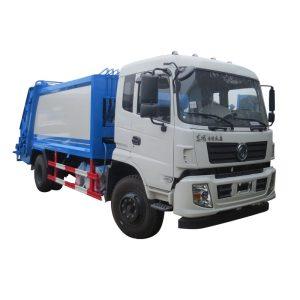Monday to Saturday - 8:00 -17:30
Dump Truck Capacity
Understanding dump truck capacity is essential for efficient operations in industries like construction and transportation. The capacity varies based on several factors that influence its hauling abilities.
Factors Influencing Dump Truck Capacity
The capacity of a dump truck is determined by several key elements that impact how much it can carry.
- Size and Type
The size and type of a dump truck significantly affect its capacity. Standard dump trucks typically hold between 10 to 16 cubic yards, while larger models, such as articulated or mining trucks, can carry much more. The design, including axle configuration and bed dimensions, plays a crucial role in determining capacity.
Choosing the right size and type is vital for meeting specific operational needs. Smaller trucks are more maneuverable and may be suitable for urban areas, while larger trucks are ideal for extensive projects. Understanding these factors ensures optimal truck selection for specific tasks, enhancing productivity and cost-effectiveness. This careful consideration helps in maximizing efficiency and minimizing unnecessary expenses.
- Material Type and Density
The type and density of the material being transported influence dump truck capacity. Heavier materials like gravel and sand may reach weight limits quickly, while lighter materials like mulch can fill the truck without exceeding capacity.
Knowing the material density is crucial for optimizing load capacity. Properly balancing weight and volume ensures efficient use, maximizing productivity. This knowledge aids in planning and executing transport tasks effectively, ensuring loads are safely managed. By aligning truck capacity with material type, businesses can optimize operations and reduce wear and tear on vehicles, supporting long-term sustainability.
Importance of Knowing Dump Truck Capacity
Understanding the capacity of a dump truck is beneficial for enhancing operational efficiency and safety.
- Efficient Planning
Knowing dump truck capacity enables better planning and resource allocation. Accurate capacity knowledge helps schedule trips, estimate project timelines, and manage costs. This foresight is essential in industries where timely material delivery is critical.
Efficient planning minimizes downtime and ensures projects stay on schedule. By optimizing truck usage, businesses can reduce fuel consumption and maintenance costs, leading to significant savings. This strategic approach enhances overall productivity and supports successful project completion, ensuring that resources are used effectively and efficiently.
- Safety Considerations
Overloading a dump truck can lead to accidents, mechanical failures, and legal issues. Understanding capacity limits ensures that loads are transported safely, protecting both the driver and the vehicle. Adhering to weight restrictions is crucial for maintaining compliance with road regulations.
Safety-conscious operations reduce the risk of costly fines and potential infrastructure damage. By prioritizing safety, businesses can maintain a positive reputation and foster a secure working environment. This focus on safety enhances trust with clients and partners, supporting long-term success and ensuring smooth operations.
Conclusion
In conclusion, understanding dump truck capacity is essential for efficient and safe operations. By considering factors like truck size, type, and material density, businesses can optimize capacity and improve planning. This knowledge supports effective project management and enhances overall productivity, ensuring successful outcomes in various industries.



